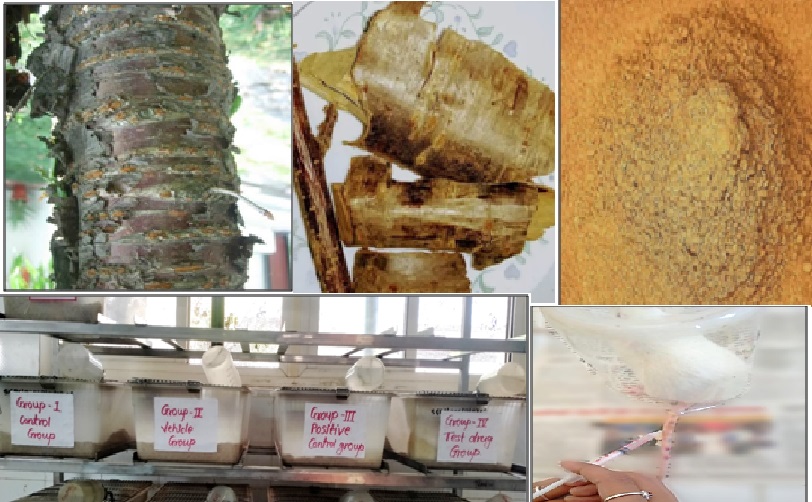An In-Vivo Study to Evaluate the Efficacy of Padmaka (Prunus Cerasoides) as a Vedanasthapak in Supti (Numbness) Caused by Neuropathy in Wistar Rats
Abstract
This research article attempts to address the main symptom of chemotherapy-induced neuropathy, which is ‘numbness’. Neuropathic pain is a common side effect of anticancer drugs that significantly reduces a patient's quality of life. This work redefines the term "Vedanasthapan" by explaining the act of regaining sensation along with its analgesic properties. This study was carried out by using an animal model of rats prepared by using an anti-cancer agent cisplatin. Before inducing cisplatin, normal latency periods of all rats were noted by ‘Hot plate’ method. Cisplatin was given to the rats to induce numbness with the interval of a week for two weeks. Four groups of rats having six rats in each group were labelled as – ‘control group’ treated with daily diet only, ‘vehicle group’ treated with carboxymethyl cellulose, ‘positive control’ treated with pregabalin, and ‘test drug group’ treated with ‘Padmaka’. After the treatment period, all groups were tested on a hot plate to record the latency time of rats. All obtained data were processed by ANOVA test and Tukey-Kramer multiple comparison test. It showed that the means of all groups differed significantly from each other. The mean time of the positive control group was 9.06 seconds and that of the experimental drug group was 12.9 seconds, which is close to the mean time in the normal state (7.36 seconds). While the control group and the vehicle group were far apart. This means that the experimental drug Padmaka is also useful in reversing cisplatin-induced numbness. Further clinical studies are needed to fully understand its range of action.
Downloads

Copyright (c) 2023 International Journal of Ayurveda and Pharma Research

This work is licensed under a Creative Commons Attribution-NonCommercial-ShareAlike 4.0 International License.






